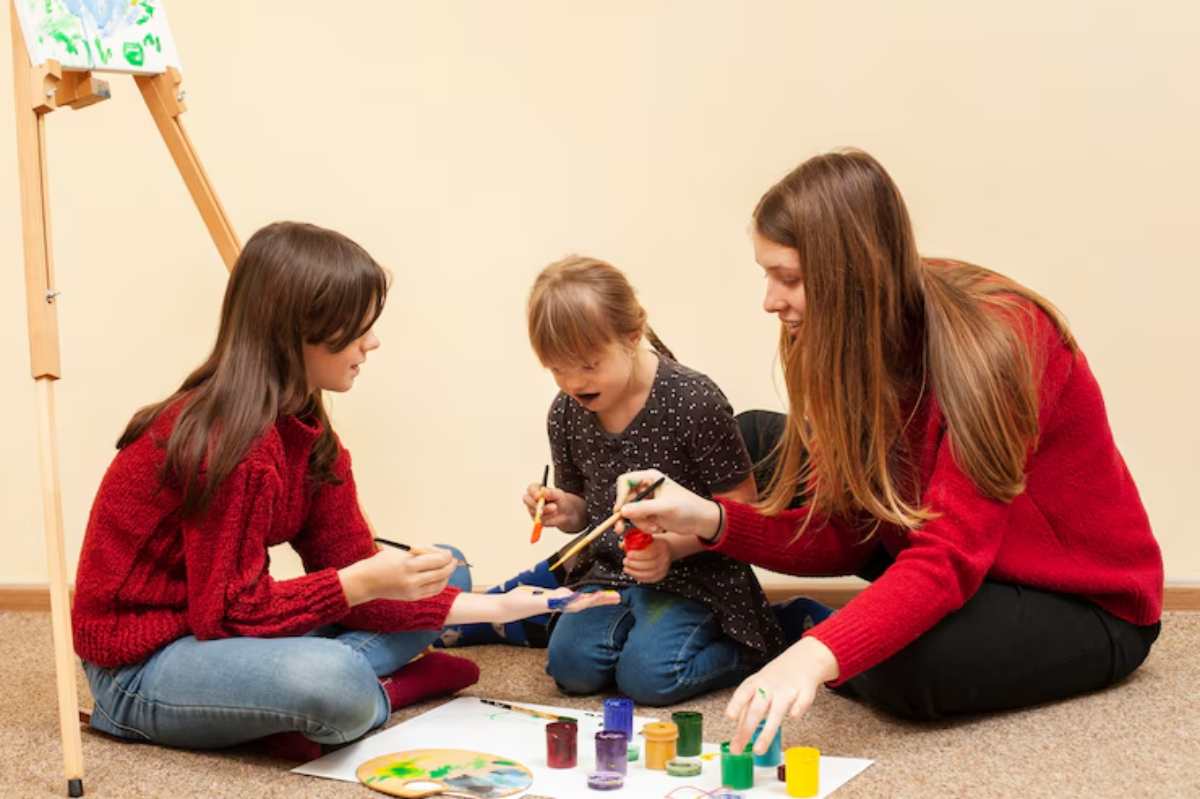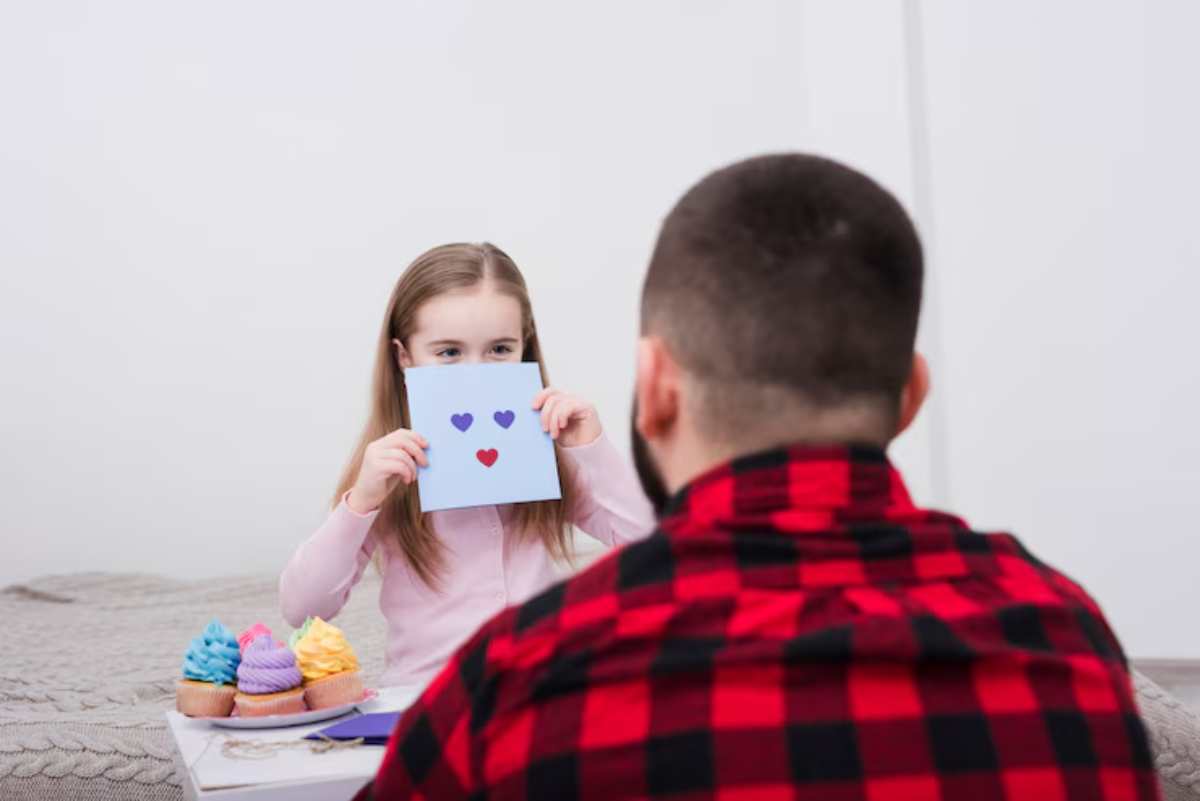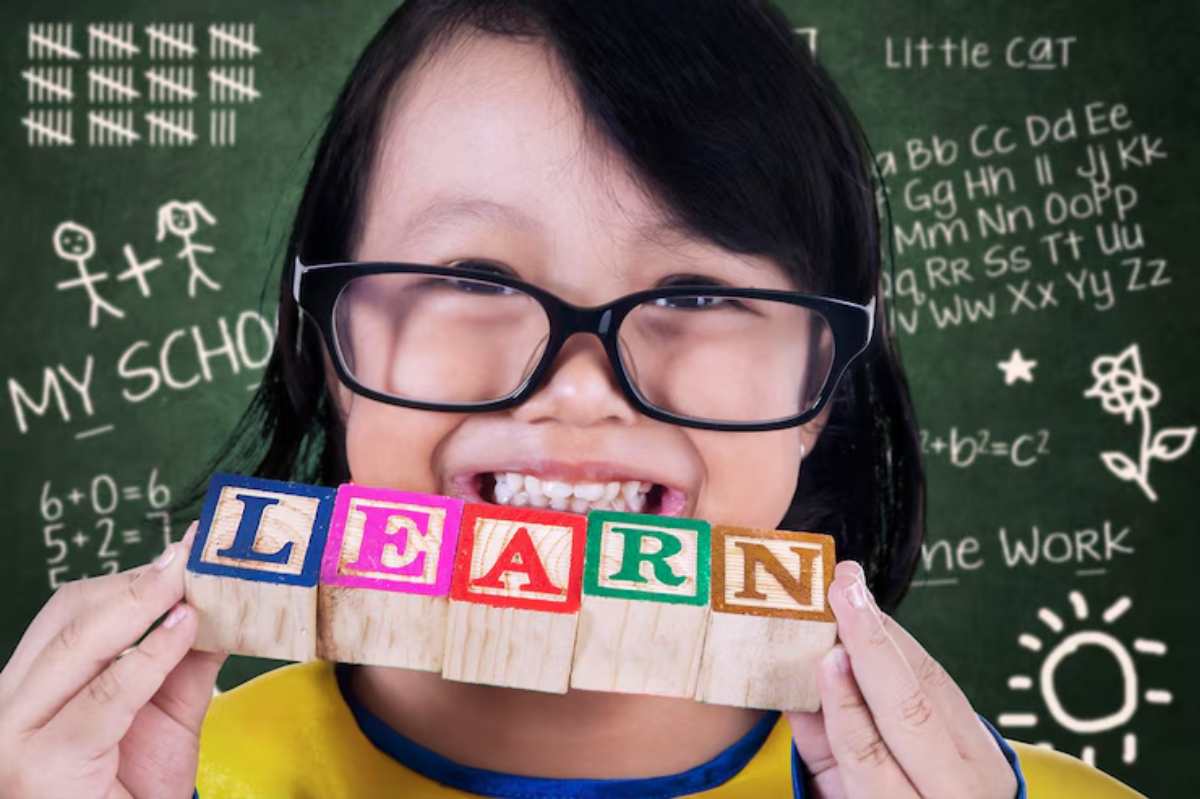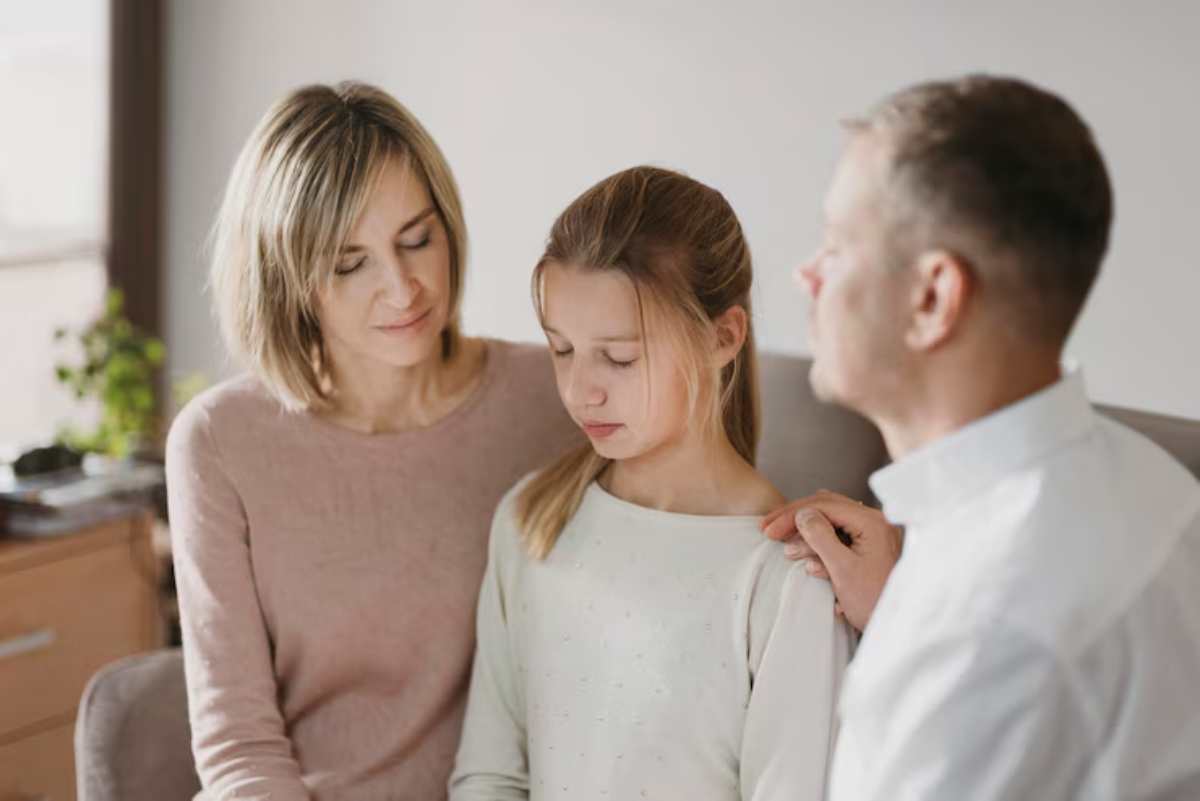
Helping Children Cope with Divorce Positively
Divorce is a significant life change — not just for the parents but most definitely for the children, too. As the world they know changes, children may feel confusion, fear, sadness or anger. Separation between parents can be emotionally challenging, but it doesn’t need to be disastrous for children. Children can handle this change if you give them the right support. Make sure you communicate well so they still feel safe, loved, and secure.
In this blog however, we are going to talk about the way divorced parents can help their child to get positive adjustment. We’ll discuss communication strategies and emotional support. You’ll find practical tools, pitfalls to avoid, and expert recommendations. These will help nurture resilience in children during and after divorce.
Why It Matters
Divorce Can Reshape a Child’s Emotional Landscape
Divorce affects children differently depending on their age, temperament, and family dynamics. Some children might withdraw, while others may become more emotionally reactive. Academic performance, social behaviour, and self-esteem can also take a hit. These emotional ripples can have long-term effects if not addressed properly.
Research shows that stable, supportive parenting can reduce the negative effects of divorce. How parents handle the transition, not the divorce itself, plays the most significant role in how a child adjusts.
The Role of Parental Support in Adjustment
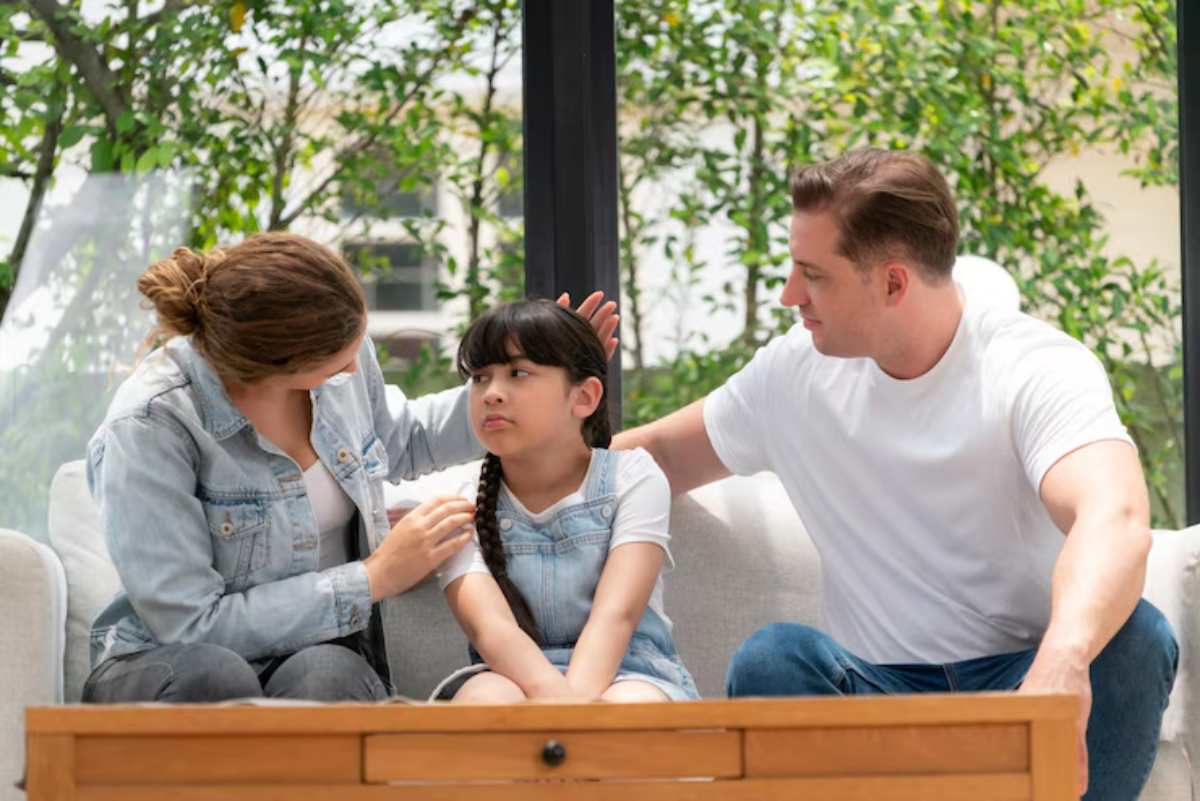
Children look to their parents for cues on how to interpret life’s changes. When divorced parents remain calm, consistent, and emotionally available, children feel more secure. A positive co-parenting environment helps kids feel secure and trust others, even when things change.
Key Benefits of Supporting Children Through Divorce
Promotes Emotional Stability
Kids who share their feelings and know their parents still love them usually develop better emotionally after a divorce. Talking openly helps kids understand their feelings better. It also cuts down on loneliness and self-blame.
Builds Trust and Security
A predictable routine and honest, age-appropriate communication give children a sense of safety. When both parents stay involved in their child’s life, it reassures them. They feel that relationships are strong, even when family structures change.
Encourages Healthy Coping Strategies
By modelling calm and constructive behaviour, parents teach children how to manage stress. Activities like journaling, drawing, or talking to a trusted adult can help kids. They build resilience and learn to manage their emotions better.
Supports Academic and Social Success
A child’s performance in school and their ability to form friendships often reflects their emotional well-being. Stable homes, even if there are two, help kids stay focused and social.
Additional Expert Tips & Common Mistakes to Avoid
What Divorced Parents Can Do Right
1. Prioritise Open Communication
Talk to your children honestly about the divorce in a way they can understand. Let them ask questions and express their feelings. Avoid placing blame or sharing adult details.
Tip: Reassure your child frequently that the divorce is not their fault, and that both parents will always love them.
2. Establish Consistent Routines
Whether a child is living in one home or moving between two, consistency is key. Regular mealtimes, bedtimes, and school routines create stability.
Tip: Work with your co-parent to set rules, schedules, and expectations together when you can.
3. Show Respect for the Other Parent
Even if tensions exist, speaking respectfully about your co-parent in front of your child is essential. It helps maintain their relationship with both parents without guilt or confusion.
Tip: Use neutral language. Instead of saying, “Your father is always late,” try “Let’s check what time your dad is picking you up today.”
Common Mistakes to Avoid
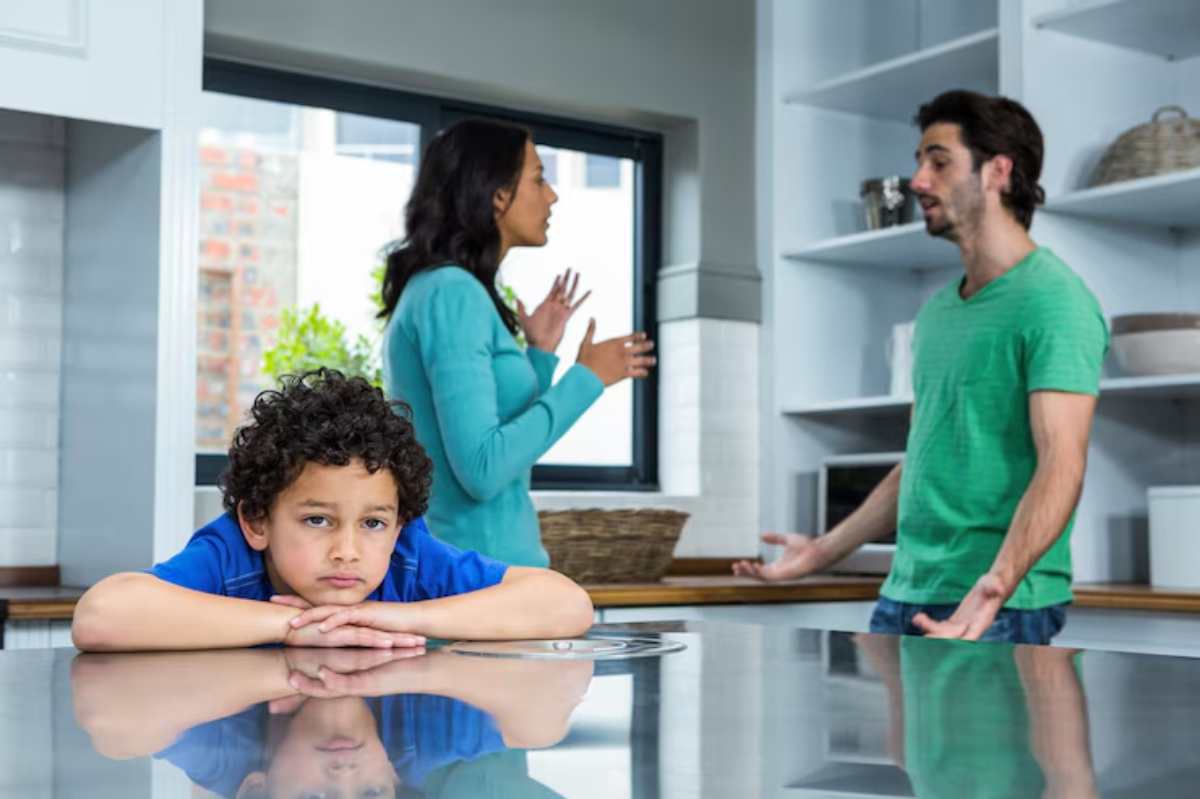
Using Children as Messengers
Relying on your child to communicate with your ex-spouse places them in a stressful position and may create loyalty conflicts.
Speaking Negatively About the Other Parent
Talking negatively about the other parent can confuse kids. It can also hurt their self-esteem, especially if they feel close to that parent.
Overcompensating with Gifts or Leniency
While it’s natural to want to ease your child’s pain, overindulging or relaxing boundaries can backfire. Children thrive with consistency and structure.
Ignoring Emotional Signs
Changes in sleep, appetite, grades, or behaviour can signal deeper emotional distress. Don’t wait for your child to voice concerns—check in often.
Advanced Insights and Expert Recommendations
Understanding the Developmental Perspective
How children respond to divorce often depends on their developmental stage. Here’s a brief overview of what to expect:
- Young Children (Ages 3–6): May fear abandonment. They need reassurance and clear, simple explanations.
- School-Age Children (Ages 7–12): Might worry about loyalty or blame themselves. They benefit from open discussion and consistent routines.
- Teens (Ages 13+): May be more vocal or resistant. Include them in talks and respect their independence. Offer emotional support, too.
When to Consider Counselling
Professional support can be incredibly beneficial. Child therapists help kids share their feelings and build coping skills. Family therapy may also help improve communication and cooperation between parents and children.
Supporting Co-Parenting Relationships
Strong co-parenting relationships are a protective factor for children. This means:
- Keeping lines of communication open and respectful
- Making joint decisions about education, health, and discipline
- Avoiding competition or trying to “win” your child’s loyalty
Co-parenting apps and mediation services can help parents work together better. They make it easier to coordinate plans and reduce conflict.
Creating a Positive Path Forward
Supporting children through a divorce isn’t about creating a fairytale. It’s about offering stability, empathy and support when times get tough.” Here are three strategies divorced parents can adopt to help heal and foster growth.
After all, your child doesn’t require an ideal family, they need you. They need your validation, your presence and your ability to keep showing up with love and understanding. A divorce can be a transition rather than a trauma.
Over time, with support and the right tools, children can grow stronger. They can develop self-awareness and emotional resilience that will help them for years.
